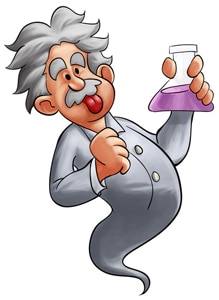
June 22, 2015
PharmedOut 2015
By Michael D. Shaw
PharmedOut is a Georgetown University Medical Center project that advances evidence-based prescribing, and educates healthcare professionals about pharmaceutical marketing practices. Founded in January, 2007, it is an Internet-based alternative for doctors seeking Continuing Medical Education (CME) courses, not sponsored by the pharmaceutical industry.
Inasmuch as the industry derives its greatest profits from new proprietary drugs, it has a built-in tendency to tout them, even though newer is not always better. One example, cited at the time of PharmedOut’s founding, came from Georgetown Ob-Gyn doctor Anthony Scialli: “Take oral contraceptives. Over the years they have increased in number, but there haven’t really been any major advances since the 1970s. The newer ones are more expensive. Why do doctors prescribe them? Because of promotion and educational activities funded by the manufacturers.”
Starting in 2010, PharmedOut has organized annual conferences. The theme of this year’s conference (June 11-12) was “The Real Risks of Rx Drugs.” Over the two days, there were 16 presentations. Let’s take a look at three of them…
The endangered normal: Does anyone escape a diagnosis?—-given by Georgetown’s Dr. Adriane Fugh-Berman, a founder of PharmedOut. As she puts it, “the medicalization of daily life has become endemic.” Whether it is a shy kid with “social anxiety disorder”; a young woman who is less horny than her partner with “hypoactive sexual desire disorder”; or someone who urinates more than four times per day with “overactive bladder syndrome,” people with these common–and likely harmless–conditions create a potentially huge, if unjustified market.
Given TV drug advertising, patients are probably more susceptible to this sort of fearmongering, but doctors are not immune. To be sure, Big Pharma uses financial and non-financial inducements to influence those who prescribe. In an earlier article, Fugh-Berman noted that “Physicians fail to recognize their vulnerability to commercial influences due to self-serving bias, rationalization, and cognitive dissonance.” She added that “Professionalism offers little protection; even the most conscious and genuine commitment to ethical behavior cannot eliminate unintentional, subconscious bias.”
Researchers behaving badly: Misconduct in clinical trials —-given by Charles Seife, journalism professor at NYU, with a math background. In exposing wrongdoing at the FDA, Seife engaged his investigative reporting class to discover shocking examples of FDA burying evidence of research misconduct. Even though the form 483s (Establishment Inspection Reports) can be heavily redacted, if one takes the time to cross reference these with clinical trial data, it is possible in certain cases to pierce the veil of secrecy. And, pierce it they did.
Among other examples, they discuss the appalling case of “RECORD 4” (Regulation of Coagulation in Orthopedic Surgery to Prevent Deep Vein Thromboembolism and Pulmonary Embolism). In this study, the new drug rivaroxaban (Xarelto) was being compared to the non-proprietary enoxaparin. At half of the sites that drew FDA scrutiny there was misconduct, fraud, fishy behavior, or other practices so objectionable that the data had to be thrown out.
Too bad that the official report, published in The Lancet, proclaiming the superiority of rivaroxaban, makes no mention of these issues. As the lawsuits against Xarelto are counted up, the FDA may change its tune, but don’t hold your breath.
Hyperglycemia, sedentary obesity, and complications of type 2 diabetes—-given by Thomas Finucane, MD of Johns Hopkins. It would be safe to say that Finucane is unconvinced regarding the merits of tight glycemic control. The final sentence of the abstract for his presentation makes that pretty clear: “The massive enterprise of setting and using drugs to achieve glycemic targets is unsupported by data, biologically implausible, and massively profitable to several interests.”
Finucane covered much of this ground in his August, 2012 paper, published in Journal of the American Geriatrics Society, with the legendary title “Tight Control in Geriatrics: The Emperor Wears a Thong.” He goes after the diabetes industry, which ceaselessly proclaims the benefits of aggressive glycemic control–especially in light of the ad agency developed Aim-Achieve-Believe: Diabetes A1c Initiative, launched on World Diabetes Day, 2002.
Finucane comes close to joining the Type 2 Deniers Club (current members include Ernest Curtis, MD and yours truly) by shredding several highly touted studies which proclaim the gospel of glycemic control. Even better, he publicizes a relatively obscure metaregression analysis of published data from 20 studies of 95,783 individuals followed for 12.4 years. One of the findings was that the risk of a cardiovascular event rose exponentially starting at a fasting blood sugar of 75 mg/dL. Apparently, virtually all of us are doomed!
In the 2012 paper, Finucane states: “The timidity of performance-measurement initiatives, disease-focused charities, professional societies, and academics in confronting the discrepancy between the data and the public relations enterprise is a matter for serious consideration.”
But does the paper’s sardonic title betray his reluctance to unequivocally condemn the type 2 memes? Indeed, why does the emperor even wear a thong, and is not simply naked?
